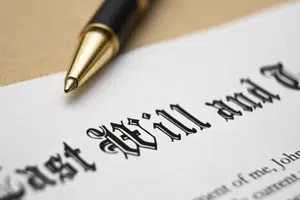
Minnesota Estate Planning for Unmarried Persons
From wills to house deeds, estate planning law can be a huge part of married and unmarried life. Not having a spouse yet doesn’t mean that you can’t leave anything behind for someone you love.
Factoring how they’ll do life after you’re gone might be something that you want to talk about first in the relationship. That is, even if marriage is the next venture that you have in store.
Your future plans aside, setting documents in place to act as backup is always wise. What your partner will do once they lose your income or what will become of your assets are important questions to answer. How they’re answered is up to you or you two if you want your favorite person to help decide.
Added Durability
Not being married to you doesn’t mean that your partner or a friend can’t help you with financial or medical decisions. They may already be giving you great advice on those subjects now.
Nonetheless, if you become too incapacitated to act on or listen to their wisdom, things could get difficult. Granting them durable power of attorney may be the counter action to take, letting them gain control over your medical and/or financial decisions.
Durable is the big word here. Selecting power of attorney that isn’t durable will mean that they’ll lose their powers once you become incapacitated. That’s fine should you want them to stop then.
If such is the case, be prepared for them to want to seek out conservatorship and/or guardianship. Your partner or friend doesn’t need to be the guardian and/or conservator, but they may still search for someone to do the job. State in your will, moreover, whether you’re open to having a guardian and/or conservator handle your affairs.
Talk Future Plans | Married or Not Married?
Unless you state otherwise in your will, passing on your assets onto the person of your choice may not come to fruition. This is especially true for unmarried individuals regardless of their partner surviving or not.
So, if you want to leave more than a hair to that special someone, draw up estate planning documents that demonstrate what you want to happen. Be mindful not to promise your partner anything that you can’t guarantee that they’ll inherit.
Even if you’ve had kids with your current partner and both your partner and your children survive you, your assets may automatically go straight to your offspring. Infertility doesn’t do anything to change the situation for your partner either. The house, car, and anything else that you owned will probably go to blood relations.
The aunt who you never saw for years may receive more money than the girlfriend you were about to marry. Say what you want in writing and err on the side that someone may not understand what you’re saying unless it’s stated legally and clearly.
Right of Survivorship
Working things out for your significant other’s advantage may mean selecting the right kind of ownership.
Whether it’s buying something small or large, check to see if joint tenancy with right of survivorship is a choice. Those are the exact words you should be on the lookout for. This kind of ownership is designed to leave every part of the asset(s) held by you two to the surviving party. Survivor takes all.
Deeds and titles, for instance, are two documents that can permit this kind of ownership. Consult your lawyer about putting any other kind of ownership on those documents, moreover.
Though your intentions may be to leave only part of what’s owned to your partner, figure out the specifics of how probate and the ownership itself will redistribute the property. Joint tenancy with right of survivorship may be the best choice if you want to guarantee that your partner fully retains what you once owned together.
Buyers Keepers
As a suggestion, avoid putting your name with your partner’s name unless you’re both paying for it. It may even be better to pass on adding your name to something if you don’t want to inherit it.
Should your name make its way onto the property and payments need to be made, you can be held accountable for the missing money. Want or use has nothing to do with this circumstance. Signing your name is, for sake of conversation, agreeing to pay for what’s being purchased.
Think of it this way. Whenever you swipe your credit card, you’re effectually telling the company that you’re willing to either go into debt or pay for the item.
Signing your name onto something is very similar. So, when payments need to be made, if your partner isn’t paying up for their side, you may find yourself paying their share. Until that item is paid off, that debt may be with you both even beyond the breakup.
Minnesota Will and Trust Lawyers
Thinking about estate planning for unmarried persons? Starting fresh or reworking your present situation are both options. The important thing is that you get external help to protect their future. Wills, trusts, and other estate planning documents can usually be changed down the line. So, don’t worry about having to make anything final. Assume that you have less time than you do, but feel free to change things up in case stuff happens.
Following talks with your significant other, consulting an estate planning lawyer from the law firm of Flanders Law Firm LLC should be your next step.
Call 612-424-0398 to contact them and walk through each of your estate plans.

Asset Protection Revocable Trusts in Minnesota
[…] or not this crossed your mind, yes, your trustee can be a beneficiary. Don’t go running out into the street, looking for a trustee. Don’t worry too much […]